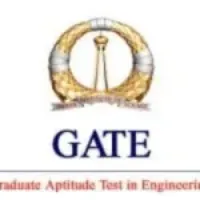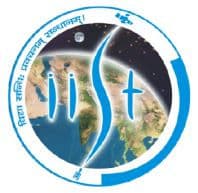Latest Applications Open 2024:
The GATE 2025 syllabus for Mathematics has been officially released by IIT Roorkee. As a crucial national-level examination, GATE 2025 is organized for admission to postgraduate programs in engineering and technology, specifically ME/M.Tech. This year’s syllabus for Mathematics is designed to assess candidates’ understanding of core mathematical concepts essential for advanced studies in various engineering fields.
The GATE 2025 exam is scheduled for the 1st, 2nd, 15th, and 16th of February 2025. The Mathematics syllabus covers a broad range of topics, including calculus, linear algebra, differential equations, and probability. This comprehensive approach ensures that candidates are well-prepared for the mathematical challenges they may encounter in their postgraduate studies.
For detailed information on the GATE 2025 Mathematics syllabus, candidates should consult the official guidelines provided by IIT Roorkee. Proper preparation based on this syllabus will be key to performing well in the exam and securing a place in a desirable postgraduate program.
GATE 2025 Mathematics Syllabus – PDF Released
GATE 2025 Mathematics Syllabus has been Released. Click to Download Mathematics Syllabus Pdf.
GATE 2025 Mathematics Syllabus
Calculus: Finite, countable and uncountable sets, Real number system as a complete ordered field, Archimedean property; Sequences and series, convergence; Limits, continuity, uniform continuity, differentiability, mean value theorems; Riemann integration, Improper integrals;
Functions of two or three variables, continuity, directional derivatives, partial derivatives, total derivative, maxima and minima, saddle point, method of Lagrange’s multipliers; Double and Triple integrals and their applications; Line integrals and Surface integrals, Green’s theorem, Stokes’ theorem, and Gauss divergence theorem.
Linear Algebra: Finite dimensional vector spaces over real or complex fields; Linear transformations and their matrix representations, rank and nullity; systems of linear equations, eigenvalues, and eigenvectors, minimal polynomial, Cayley-Hamilton Theorem, diagonalization,
Jordan canonical form, symmetric, skew-symmetric, Hermitian, skew-Hermitian, orthogonal and unitary matrices; Finite dimensional inner product spaces, Gram- Schmidt orthonormalization process, definite forms.
Real Analysis: Metric spaces, connectedness, compactness, completeness; Sequences and series of functions, uniform convergence; Weierstrass approximation theorem; Power series; Functions of several variables: Differentiation, contraction mapping principle,
Inverse and Implicit function theorems; Lebesgue measure, measurable functions; Lebesgue integral, Fatou’s lemma, monotone convergence theorem, dominated convergence theorem.
Complex Analysis: Analytic functions, harmonic functions; Complex integration: Cauchy’s integral theorem and formula; Liouville’s theorem, maximum modulus principle, Morera’s theorem; zeros and singularities; Power series, a radius of convergence,
Taylor’s theorem and Laurent’s theorem; residue theorem and applications for evaluating real integrals; Rouche’s theorem, Argument principle, Schwarz lemma; conformal mappings, bilinear transformations.
Ordinary Differential equations: First-order ordinary differential equations, existence and uniqueness theorems for initial value problems, linear ordinary differential equations of higher order with constant coefficients; Second-order linear ordinary differential equations with variable coefficients;
Cauchy-Euler equation, method of Laplace transforms for solving ordinary differential equations, series solutions (power series, Frobenius method); Legendre and Bessel functions and their orthogonal properties; Systems of linear first-order ordinary differential equations.
Algebra: Groups, subgroups, normal subgroups, quotient groups, homomorphisms, automorphisms; cyclic groups, permutation groups, Sylow’s theorems, and their applications;
Also, Check Below-
Rings, prime and maximal ideals, quotient rings, unique factorization domains, Principle ideal domains, Euclidean domains, polynomial rings, and irreducibility criteria, Fields, finite fields, and field extensions.
Functional Analysis: Normed linear spaces, Banach spaces, Hahn-Banach theorem, open mapping and closed graph theorems, the principle of uniform boundedness; Inner-product spaces, Hilbert spaces, orthonormal bases; Riesz representation theorem.
Numerical Analysis: Numerical solutions of algebraic and transcendental equations: bisection, secant method, Newton-Raphson method, fixed-point iteration; Interpolation: error of polynomial interpolation, Lagrange and Newton interpolations; Numerical differentiation;
Numerical integration: Trapezoidal and Simpson’s rules; Numerical solution of a system of linear equations: direct methods (Gauss elimination, LU decomposition), iterative methods (Jacobi and Gauss-Seidel); Numerical solution of initial value problems of ODEs: Euler’s method, Runge-Kutta methods of order 2.
Partial Differential Equations: Linear and quasi-linear first-order partial differential equations, method of characteristics; Second-order linear equations in two variables and their classification; Cauchy, Dirichlet, and Neumann problems;
Solutions of Laplace and wave equations in two-dimensional Cartesian coordinates, interior and exterior Dirichlet problems in polar coordinates; Separation of variables method for solving wave and diffusion equations in one space variable; Fourier series and Fourier transform, and Laplace transforms methods of solutions for the equations mentioned above.
Topology: Basic concepts of topology, bases, subbases, subspace topology, order topology, product topology, metric topology, connectedness, compactness, countability, and separation axioms, Urysohn’s Lemma.
Linear Programming: Linear programming problem and its formulation, convex sets and their properties, graphical method, basic feasible solution; simplex method, two-phase methods; infeasible and unbounded LPPs, alternate optima; Dual problem and duality theorems; Balanced and unbalanced transportation problems, Vogel’s approximation method for solving transportation problems; Hungarian method for solving assignment problems.
Other GATE Related Syllabus PDF
| Syllabus | Code | Syllabus | Code |
| Data Science & Artificial Intelligence | (DA) | Biotechnology | (BT) |
| Agricultural Engineering | (AG) | Civil Engineering | (CE) |
| Architecture and Planning | (AR) | Chemical Engineering | (CH) |
| Computer Science and Information Technology | (CS &IT) | Chemistry | (CY) |
| Electronics and Communication Engineering | (EC) | Electrical Engineering | (EE) |
If you have any queries regarding the GATE 2025 Mathematics Syllabus, you can ask your query and leave comments below.

As a dedicated Biology Science graduate, I’m passionate about sharing the latest updates in national and state entrance exams through my blog. I aim to keep aspiring students informed about exam trends, important dates, and changes in syllabi. With a keen interest in education, I strive to offer valuable insights for students navigating the competitive landscape of entrance examinations and admission tests. Stay updated with me.


